In episode 232, Michael Shermer speaks with neuroscientist and professor of psychology, Amishi Jha, about how to achieve Peak Mind, based on her book Peak Mind: Find Your Focus, Own Your Attention, Invest 12 Minutes a Day.
Tags
-
browse by topic
neuroscience
eSkeptic for Dec 4, 2021
Angus Fletcher — 25 Most Powerful Inventions in the History of Literature

In episode 177 of Michael Shermer’s podcast, he speaks with neuroscientist and literature professor Dr. Angus Fletcher about 25 of the most powerful developments in the history of literature, from ancient Mesopotamia to Elena Ferrante.
eSkeptic for May 1, 2021
In episode 177 of Michael Shermer’s podcast, he speaks with neuroscientist and literature professor Dr. Angus Fletcher about 25 of the most powerful developments in the history of literature, from ancient Mesopotamia to Elena Ferrante. PLUS: From now through May 3, 2021 all print and digital back issues of Skeptic magazine are on sale for only 99 cents each! Now is the time to complete your collection!
Jeff Hawkins — A Thousand Brains: A New Theory of Intelligence
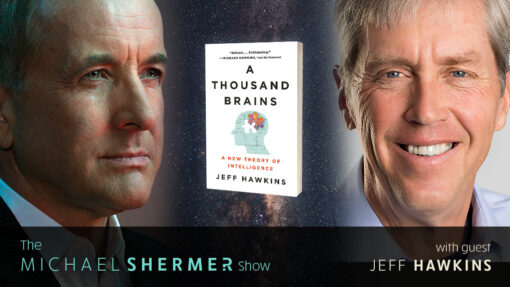
For all of neuroscience’s advances, we’ve made little progress on its biggest question: How do simple cells in the brain create intelligence? Jeff Hawkins and his team discovered that the brain uses maplike structures to build a model of the world — not just one model, but hundreds of thousands of models of everything we know. This discovery allows Hawkins to answer important questions about how we perceive the world.
eSkeptic for April 3, 2021

In The Michael Shermer Show # 169, Michael Shermer speaks with Jeff Hawkins, cofounder of Numenta: a neuroscience research company, about his new book A Thousand Brains: A New Theory of Intelligence. PLUS: Raymond Barglow and Margret Schaefer discuss the anti-vaccination movement in the age of COVID-19.
Philip Goff — Galileo’s Error: Foundations for a New Science of Consciousness
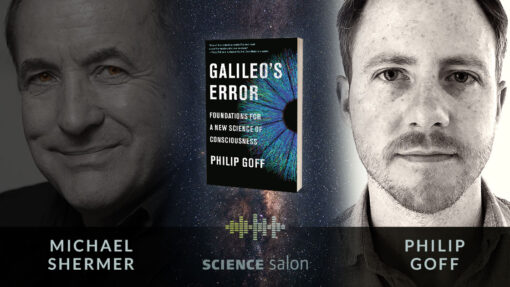
Shermer and Goff discuss: the problem Galileo’s approach to science solved • dualism, monism, panpsychism • idealism • hard problem of consciousness • ultimate nature of reality • model dependent realism • Arthur Stanley Eddington and Bertrand Russell build panpsychism back into science • philosophical zombies • free will, determinism, compatibilism • objective moral values • fine tuning and the multiverse.
eSkeptic for November 9, 2020
In Science Salon # 142 Michael Shermer speaks with Philip Goff about his new book Galileo’s Error: Foundations for a New Science of Consciousness. PLUS, we celebrate Carl Sagan’s birthday; he would have been 86 years old today.
eSkeptic for August 25, 2020
In Science Salon # 130, Michael Shermer speaks with Debra Soh — a neuroscientist who specializes in gender, sex, and sexual orientation — about her new book: The End of Gender: Debunking the Myths About Sex and Identity in Our Society.
Debra Soh — The End of Gender: Debunking the Myths About Sex and Identity in Our Society
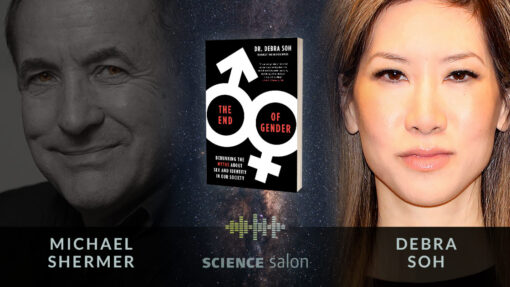
In Science Salon # 130, Michael Shermer speaks with Debra Soh — a neuroscientist who specializes in gender, sex, and sexual orientation — about her new book: The End of Gender: Debunking the Myths About Sex and Identity in Our Society.
eSkeptic for August 18, 2020
Today, August 18, marks the 100th anniversary of the adoption of the 19th Amendment to the Constitution of the United States, guaranteeing women the right to vote. We honor that momentous event with an excerpt adapted from the chapter on women’s rights in Dr. Shermer’s 2015 book The Moral Arc. PLUS: in Science Salon # 129, Michael Shermer speaks with Mona Sue Weissmark about her book The Science of Diversity which uses a multidisciplinary approach to excavate the theories, principles,…
Mona Sue Weissmark — The Science of Diversity
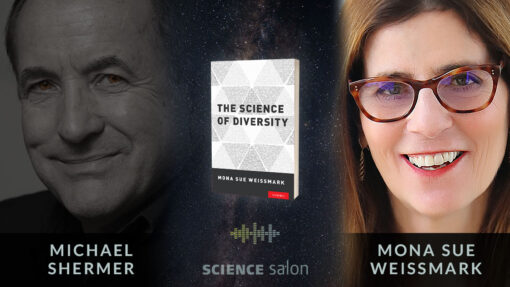
In Science Salon # 129, Michael Shermer speaks with Mona Sue Weissmark about her book The Science of Diversity which uses a multidisciplinary approach to excavate the theories, principles, and paradigms that illuminate our understanding of the issues surrounding human diversity, social equality, and justice.
Matthew Cobb — The Idea of the Brain: The Past and Future of Neuroscience
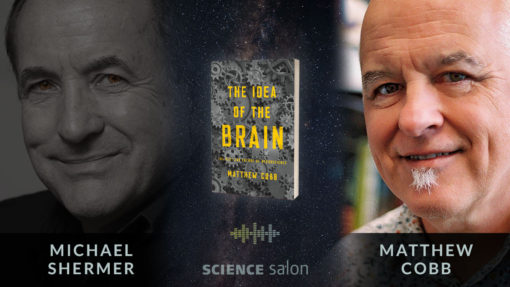
In Science Salon # 115, Michael Shermer speaks with scientist and historian Matthew Cobb about his book The Idea of the Brain: The Past and Future of Neuroscience which traces how our conception of the brain has evolved over the centuries.
eSkeptic for May 12, 2020
In Science Salon # 115, Michael Shermer speaks with scientist and historian Matthew Cobb about his book The Idea of the Brain: The Past and Future of Neuroscience which traces how our conception of the brain has evolved over the centuries.
Christof Koch — The Feeling of Life Itself: Why Consciousness is Widespread but Can’t Be Computed
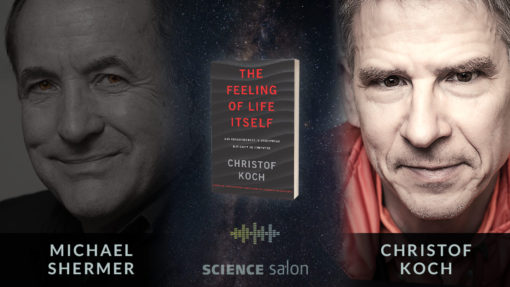
In this fascinating discussion of the hard problem of consciousness — that is, explaining how the feeling or experience of something can arise from neural activity — neuroscientists Christof Koch argues that consciousness is the feeling of being alive, not a type of computation or a clever hack. Consciousness is experience. Consciousness is The Feeling of Life Itself.
eSkeptic for September 24, 2019
Science Salon # 84 Michael Shermer speaks with Christof Koch about his new book The Feeling of Life Itself: Why Consciousness is Widespread but Can’t Be Computed; PLUS, Harriet Hall, M.D. looks at the evidence for some of the extraordinary claims for coconut oil.
eSkeptic for April 3, 2019
In Science Salon # 60 — exceptionally important conversation — Dr. Shermer discusses at length the background to and research of Dr. Nicholas Christakis, a physician and evolutionary sociologist famous for his study of social networks in humans and other animals. PLUS: The breadth of what can be meant by the word “hoax” makes the concept — and consequences — worthy of renewed study. Michelle E. Ainsworth reviews Bunk: The Rise of Hoaxes, Humbug, Plagiarists, Phonies, Post-Facts, and Fake News…
Dr. Nicholas A. Christakis — Blueprint: The Evolutionary Origins of a Good Society
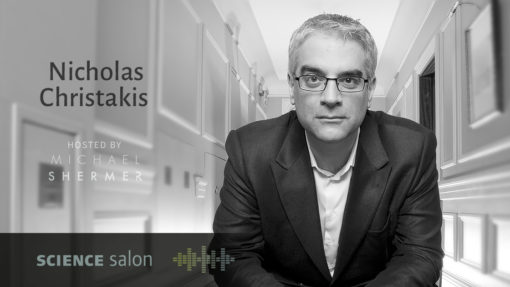
In Science Salon # 60 — an exceptionally important conversation — Dr. Shermer discusses at length the background to and research of Dr. Nicholas Christakis, a physician and evolutionary sociologist famous for his study of social networks in humans and other animals.
Personhood & Abortion Rights: How Science Might Inform this Contentious Issue
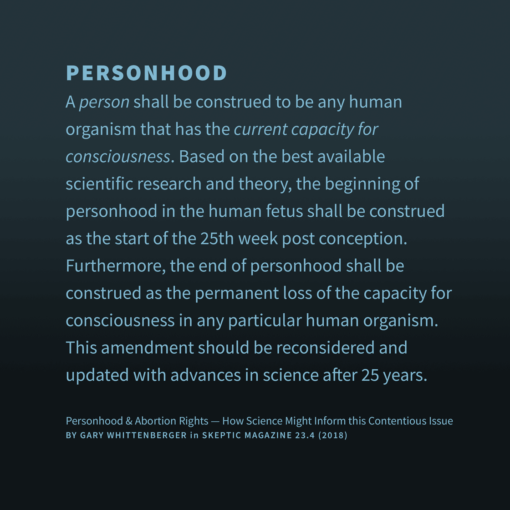
Although it’s been 45 years since Roe v. Wade, abortion continues to be a highly controversial and polarizing issue. In this essay, Gary Whittenberger articulates the philosophical and scientific foundation for a third option between the two extremes of pro-life and pro-choice — the pro-person position — after examining the evidence for the best possible answer to the question: “When does the human fetus acquire the capacity for consciousness?” This article appeared in Skeptic magazine 23.4 (2018).
eSkeptic for February 13, 2019

Although it’s been 45 years since Roe v. Wade, abortion continues to be a highly controversial and polarizing issue. In this essay, Gary Whittenberger articulates the philosophical and scientific foundation for a third option between the two extremes of pro-life and pro-choice — the pro-person position — after examining the evidence for the best possible answer to the question: “When does the human fetus acquire the capacity for consciousness?”
eSkeptic for May 16, 2018
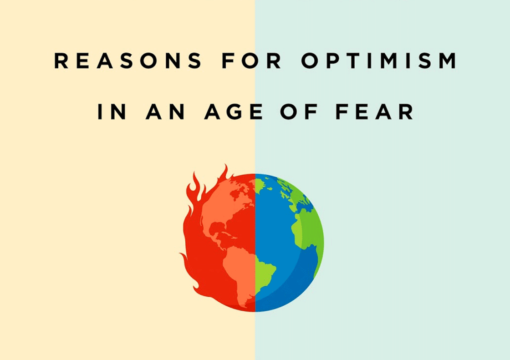
Michael Shermer reviews It’s Better Than it Looks: Reasons for Optimism in an Age of Fear by Gregg Easterbrook; On MonsterTalk, Blake Smith interviews City of the Dead tour-guide Fred Fogarty about the Greyfriars Kirkyard and the Mackenzie Poltergeist.
SKEPTIC App
Whether at home or on the go, the SKEPTIC App is the easiest way to read your favorite articles. Within the app, users can purchase the current issue and back issues. Download the app today and get a 30-day free trial subscription.








